Novellas have had an interesting resurgence over the past few years. Perhaps we have finally grown weary of the long, multi-book epic. Perhaps we just want bite-sized works to read in the middle of our busy lives. Whatever the case, I’m having a great time because of it.
As a wizened elder in his mid-30s with a young child who would put and eat many dangerous things in his mouth if I wasn’t watching, novellas provide me with works that I can read in one sitting when given the chance. Beyond that, they also provide some of the best writing you’re likely to find anywhere.
Novellas force authors to be more efficient with their writing, fighting a ton of work into a little space. As such, many novellas include some of the hands-down best writing on a technical level I’ve ever seen. Don’t believe me? Here are some of the best novellas from the past five years. Give one a read and tell me if I’m wrong.
What Moves the Dead by T. Kingfisher
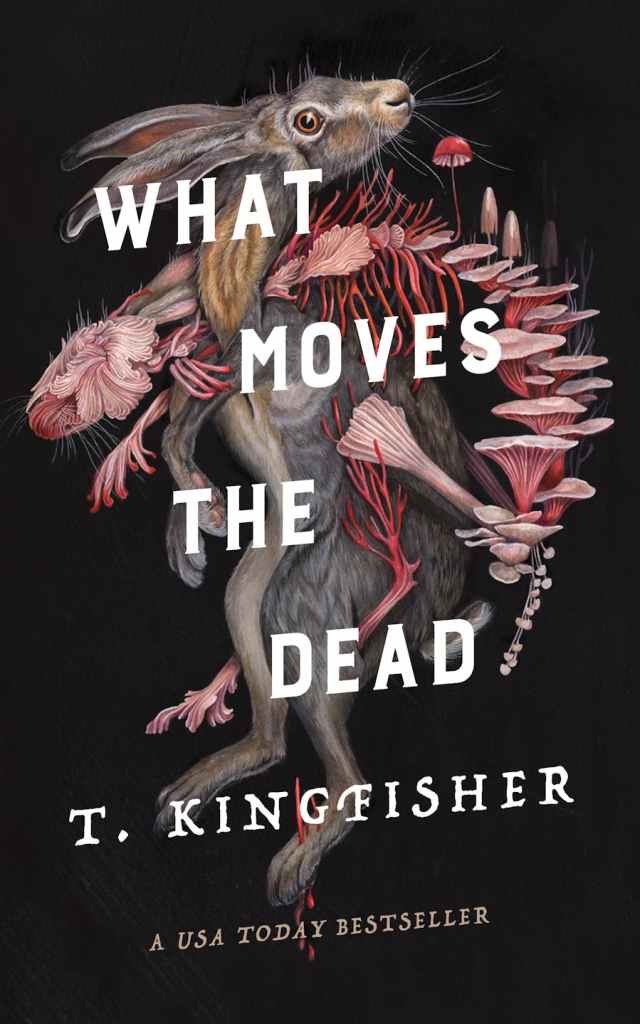
This novella can be classified as several things, as it also ends up in horror sections in many stores. A retelling of Edgar Allen Poe’s Fall of the House of Usher, Kingfisher uses incredibly vivid descriptions and a tense atmosphere to create an unforgettable experience. It almost feels like cozy horror, with a slight sci-fi twist that I won’t spoil.
It should be no surprise that Kingfisher’s novella reads well. She won the Hugo for another of her books, Nettle & Bone, just last year. Her characters in this novella are wonderful, memorable, and fleshed out, with bits and pieces of their backstory scattered throughout like little lore nuggets. For fans of Poe, lovers of solid character, or even those who just want to dip their toes into horror without it being too horrific, What Moves the Dead is a fantastic choice.
Elder Race by Adrian Tchaikovsky
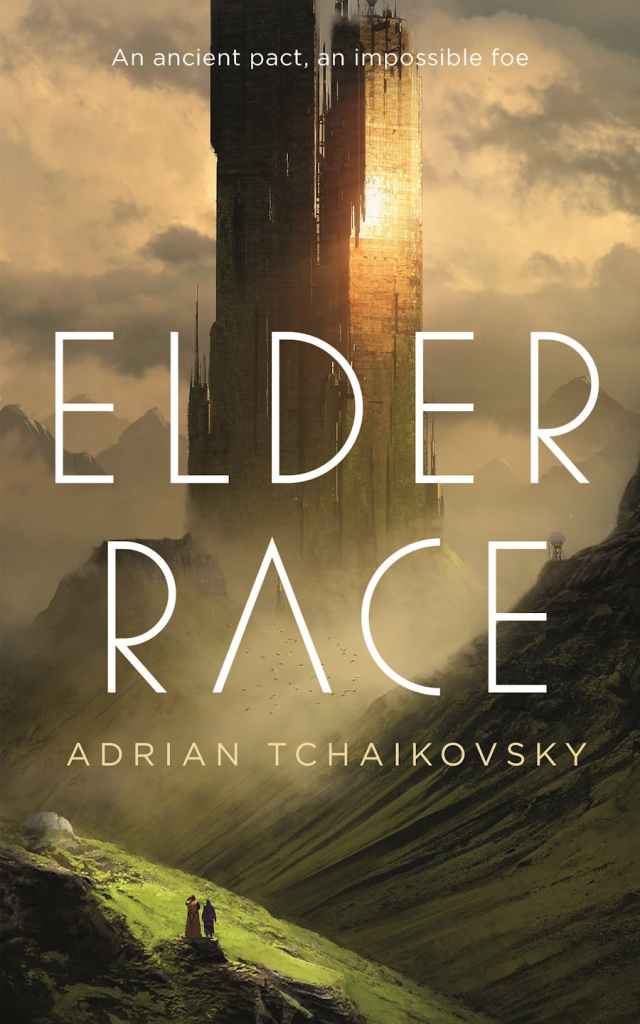
Fans of sci-fi novels should be aware of Tchaikovsky’s works. His Children of Time series has been a critical darling, winning award after award. Still, for those who want to give his works a try before starting his larger, more dense sagas, Elder Race would be a great place to start.
To set the stage, we’ll first discuss another author. Arthur C. Clarke, author of 2001: A Space Odyssey, penned an essay that listed his three laws of science fiction. Perhaps the most memorable is the third: Any sufficiently advanced technology is indistinguishable from magic. Elder Race is that law turned directly into a novella.
The novella is a story told from two perspectives, one of a person who was told stories of a great wizard who lives high up on the mountain and once saved her people, whom she must now call upon again, and that wizard, who is really just an off-world researcher who puts himself into cryosleep for a decade or so before waking up to collect data with satellites and drones. Watching these characters try to interact, discuss technology, or even just how they perceive situations so differently is fascinating. Pair that with an endlessly cool sci-fi antagonist, if it can be called that, turns the novella into a two-perspective thriller that makes one consider more about the genres of sci-fi and fantasy and what they may have in common.
This is How You Lose the Time War by Amal El-Mohtar and Max Gladstone
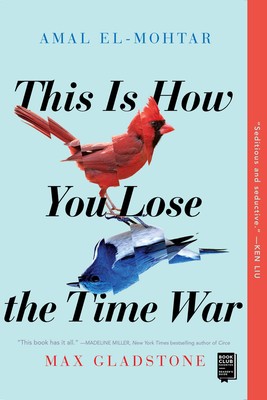
This is the most breathtakingly beautiful book on this list. It almost isn’t fair. The prose in this book is unmatched, a masterful work that should prove to many that sci-fi is a genre to be taken seriously in the literary world. Written by two authors, the novel takes the form of messages sent between two opposing agents in a time war, fighting to make their future the future.
Calling them messages doesn’t even do them justice. These are notes left in the dust of dying stars, taunts etched into cave walls to be read thousands of years in the future. The weft and weave of these characters and their relationship as they move through time is stunning, touching, and unforgettable. I won’t say too much more, as to do so would just be me continuing to gush, but if you’re a reader who likes prose-heavy works from time to time, you won’t find a better one than this.
Empress of Salt and Fortune by Nhgi Vo
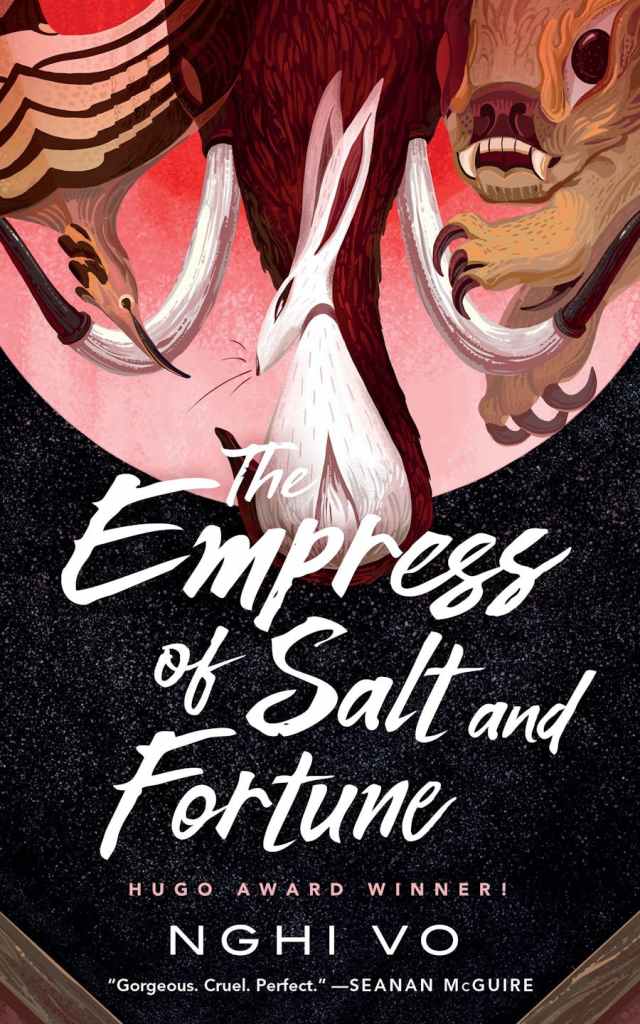
I straight up don’t understand how Vo accomplishes what she does with this one. I finished reading this and felt like I had just finished reading a worldbuilding epic, with a huge and expansive setting built and fleshed out that encompassed so much. Then I looked back and realized the book was only 120 pages long with a big font.
For those who are still fans of fantasy epics but would like to try a novella, this is the go-to choice. The story follows an exiled Empress and her handmaiden, with all the information about the world provided to us either in the form of a story or second-hand as it is told to our characters. Despite this, the world Vo builds is well thought out, provided to us using such interesting means. The pace of this one will be fast, as the information has to be provided constantly as the story is told, but if you can hold on, this book achieves something that no other novella I have read does; matching the worldbuilding of any Sanderson or Jordan book in just over 100 short pages.
Ring Shout by P. Djèlí Clark
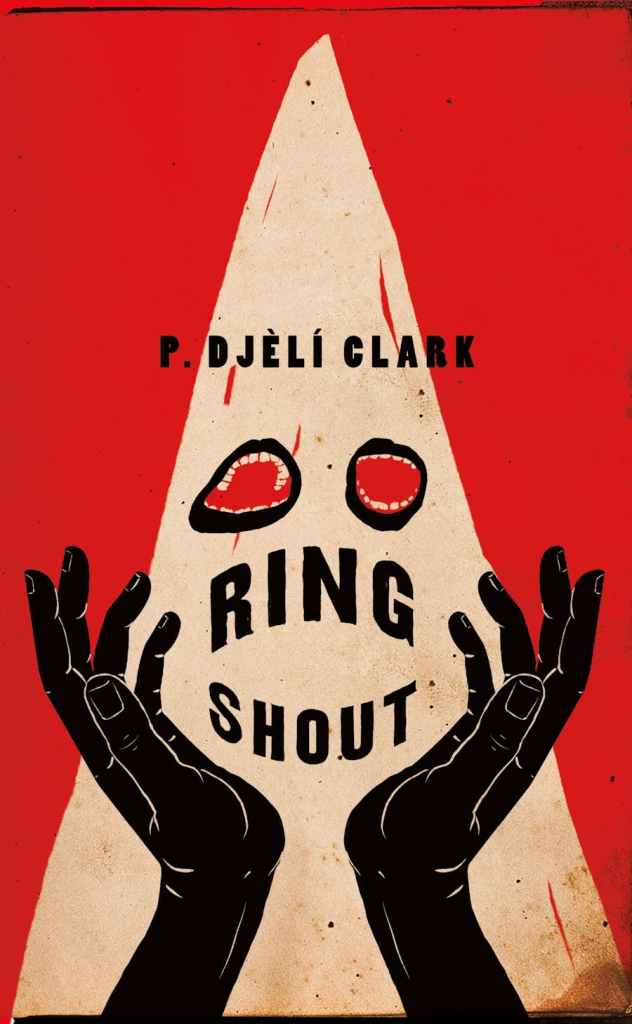
Ring Shout is cool, culturally informative, and historically revealing, making it an incredibly dense novella. But, despite this density, there’s still some time for good old demon slaying. Ring Shout takes place in 1922 America, where the movie Birth of a Nation, the movie that single-handedly sparked the rebirth of the KKK, is being shown across the nation. However, the members of the KKK aren’t always flesh and blood. Something that feeds on hate has traveled through the stars and found our planet, where they found enough hate to sustain them among the members of the KKK. In response, fighters are trained to take them down, seeking to put an end to both the KKK and whatever pushes them forward from the edges of our cosmos.
Part look at the black cultural experience in early 1900s America, part action demon shooting devil slicing action, part Lovecraftian horror, Ring Shout tells an awesome tale with a deep level of historical credibility that brings it a step further. For those looking for a viewpoint into African American history and culture, who want a bit of revisionist history with some otherworldly horror mixed in, or just want to read about sick-ass freedom fighters taking a shotgun to some demons, Ring Shout will get you there.








